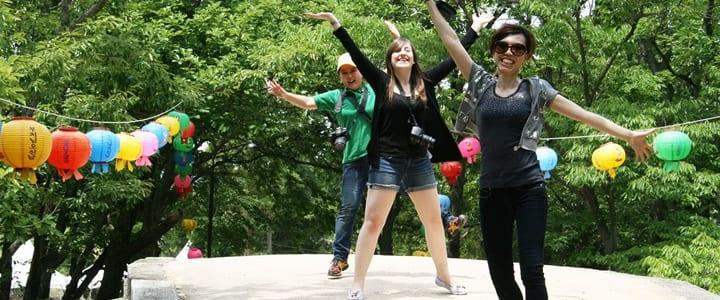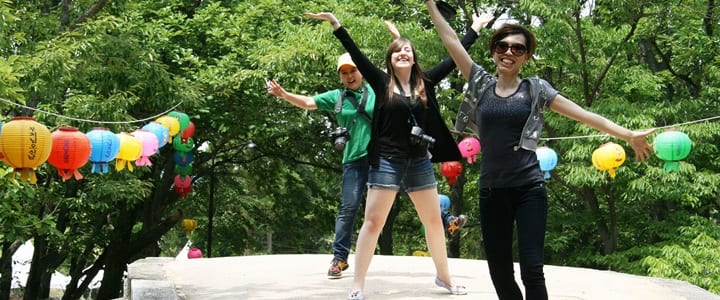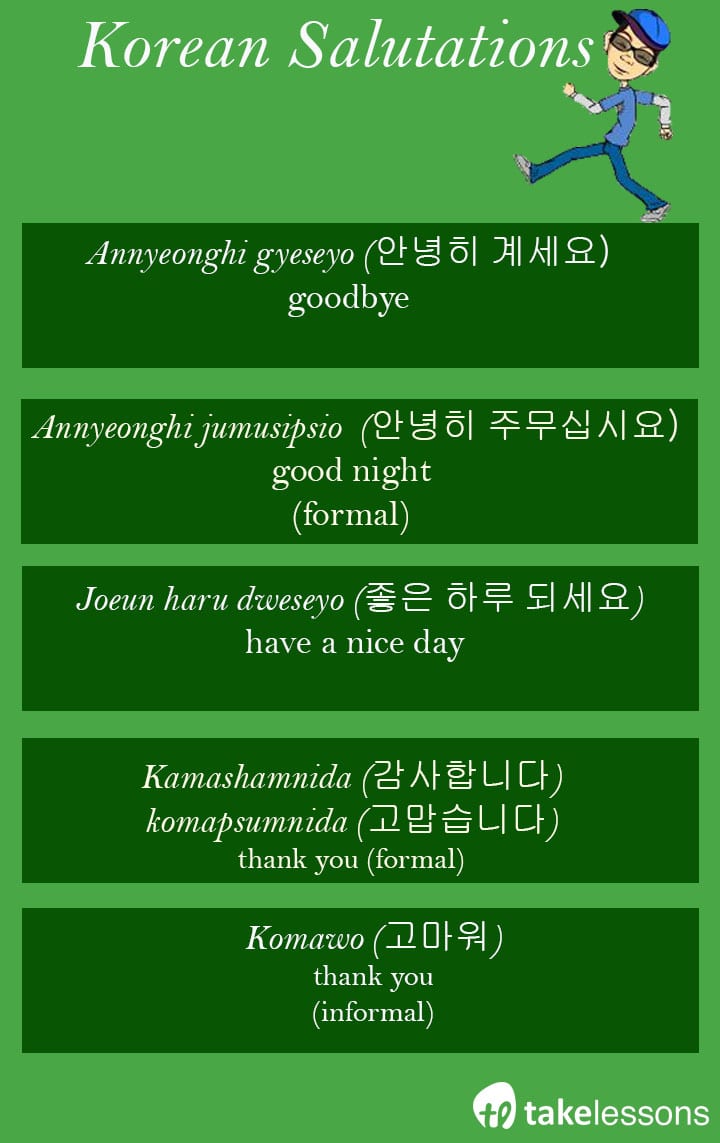Whether you’re studying Korean for academic reasons or to prepare for an upcoming trip, there are a few key Korean sentences that can help you communicate and find your way around.
Formal and Informal Phrases
The following Korean phrases are a mix of formal and informal. Unlike Western languages that conjugate verbs based on the subject (such as I, you, he/she/it, we, and they), Eastern languages conjugate verbs based on formal and informal speech.
You use informal speech with people you know well, such as friends and family. Use formal speech to show respect to the person you’re speaking with.
Greetings
Annyeong-hasimnikka – 안녕하십니까
This is the formal way to say “hello.” You can also use this phrase to say “good morning,” “good afternoon,” and “good evening.”
Annyeonghaseyo – 안녕하세요 /annyeong – 안녕
Hello (informal).
Mannaseo bangapseumnida – 만나서 반갑습니다
This is the formal way to say “nice to meet you.” The informal version shortens the second word to bangawoyo: mannaseo bangawoyo (만나서 반가워요 )
Eotteohke jinaeseyo – 어떻게 지내세요?
How are you? (formal).
Jaljinaeyo – 잘지내요
When someone asks you how you’re doing, you can respond with jaljinaeyo (I’m fine).
Created with ToonDoo
Salutations
Annyeonghi gyeseyo – 안녕히 계세요
When you’re leaving, say annyeonghi gyeseyo to say “goodbye.”
Annyeonghi jumusipsio – 안녕히 주무십시요
Good night (formal).
If someone else is leaving, say annyeonghi gaseyo (안녕히 가세요).
Joeun haru dweseyo – 좋은 하루 되세요
Have a nice day.
Kamsahamnida – 감사합니다 / komapsumnida – 고맙습니다
Thank you in Korean formal
Komawo – 고마워
Thank you (informal).
Created with ToonDoo
Exclamations
Araso – 아랐어
In conversation, respond with araso to let someone know you understand what they’re saying.
If you don’t understand and need clarification, you can say arasoyo (아랐어요).
Shillehagessumnida – 실례하겠습니다
Need to pass someone or get someone’s attention? Say shillehagessumnida (excuse me).
Mianhamnida – 미안합니다! /joesonghamnida – 죄송합니다
I’m sorry (formal).
Mian – 미안
I’m sorry (informal).
Created with ToonDoo
Practice these Korean phrases so you can use them in conversations with native Korean speakers. If you need help with pronunciation and other basic Korean words make sure to review these with your Korean teacher.
What other Korean phrases would you like to learn? Let us know in the comments below!
Photo by Republic of Korea
Maile Proctor





